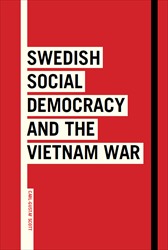West European leaders had good reasons to oppose US Vietnam war policy. It threatened to alter the global balance of power while igniting unrest at home. Such turbulence led to a radicalized political atmosphere domestically. In this new environment, the “New Left” established a powerful foothold among the “68-generation”. In many West European countries the new radical left rejected the older Socialist and Communist parties in favor of more radical political alternatives.
In Sweden the Social Democratic government struggled to maintain a workable relationship with Washington while at the same time placating domestic anti-war opinion – thus preventing this issue from being hijacked by the far left. How did the Swedish Social Democrats resolve this dilemma?
Although this is the most written-about episode in Swedish postwar diplomacy, this is the first book to scrutinize the impact of Sweden's Vietnam War policy on its domestic politics.


